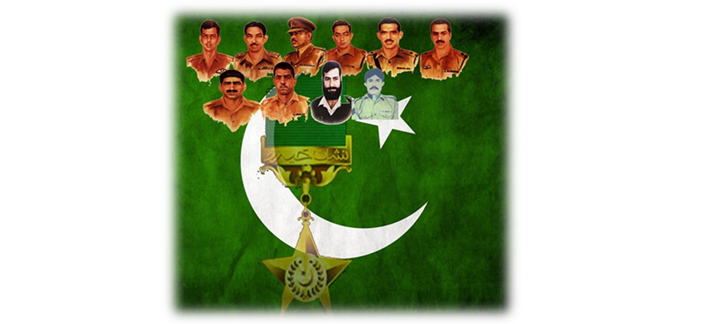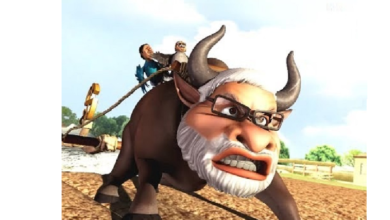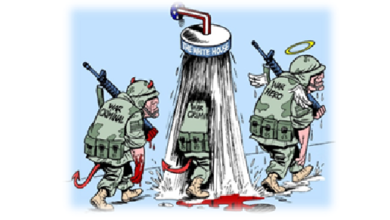Message of Defence Day
The Essence of Resistance: A Path to Enduring Victory
Resilience is the force that helps those who have fallen to rise again, gives the drowning the courage to swim, and brings them safely to shore. It helps the sick conquer illness (by God’s will) and causes the flame of a dying lamp to flare up before it extinguishes—why? Perhaps the lamp wishes to burn a little longer. This is its resistance. Against the darkness, if a traveller finds himself lost in a forest surrounded by predators, he fights alone because there is no other option. Even a weak patient, who can’t rise from his bed to drink water, might leap from his bed during a sudden crisis. This is because the patient possesses a hidden resilience he wasn’t aware of, which awakens in the face of danger. This is the force that drives the weak to challenge the powerful, gives a delicate pigeon the courage of a falcon, makes an ant stand against an elephant, causes the eyes of the oppressed to flash with fury, and turns smouldering embers into a blazing fire.
However, history tells us that worldly success often causes this resilience to wane. But when resilience is combined with “faith in God,” it never weakens; some spark always remains alive in the ashes. When the force of resilience awakens, this spark ignites. But is it necessary for this resilience to awaken only when the danger becomes a reality—when the sword’s edge starts to touch the throat, when the roar of tanks and planes can be heard on the streets and rooftops, when Daisy Cutters, Cruise, and Tomahawk missiles rain down like drops from the sky? Will we only resort to resistance after losing much, in a bid to save what little remains?
For the first time, Pakistani leaders have captured the hearts of the entire nation by providing a timely and appropriate response to the threat, rather than seeing it as something far off. The truth is, when a nation surrenders without fighting, it’s not a physical defeat but a mental one. The enemy doesn’t have to work too hard to physically conquer such a nation. Halaku Khan’s armies didn’t build towers of skulls for no reason. When Salahuddin Ayyubi spoke of the “Islamic Ummah,” a traitorous military officer smirked cynically, questioning which Ummah he was referring to. This was the lowest form of mental defeat, where a giant of a man denied his own existence. But Salahuddin Ayyubi combined the power of resistance with faith and reclaimed Jerusalem from unholy hands after Caliph Umar.
Today, seeing us standing firm in the field, our enemy has invited greater trouble upon itself than before. Despite the likelihood of a certain defeat, the desire for worldly domination has dragged it into a swamp where the next step could strip away its apparent grandeur and fake might. This has happened before. The enemy arrogantly claimed it would have tea at the Lahore Gymkhana but lost even Khaim Karan in the process. It dreamt of cutting off Azad Kashmir by capturing Chamb Jourian but had to face a horrific reality. It tried its best to divide Punjab by capturing Sialkot but forgot even to retrieve its soldiers’ corpses. Finally, in a display of ultimate arrogance, it brought a storm of over 500 tanks into the fields of Chawinda, telling its allies to prepare for victory celebrations. Little did it know that it would face young men, driven by patriotism and the desire for martyrdom, who would dash towards the giant tanks with such speed that the tanks, instead of attacking, would retreat in fear. In no time, for the first time since World War II, Chawinda became the largest graveyard of Indian tanks, leaving military and defense analysts around the world baffled as to how to describe this extreme act of bravery.
Have we ever thought that after a failed attempt to terrorize us into submission, despite all its military might, the enemy is more frightened than we are? Its advance is not like that of a lion but rather a fox’s cunning. Now, to corner us, it will not refrain from using other hidden means, like political and economic subversion. Therefore, today we need to understand our resilience, which is rooted in “faith.” The strength that solidifies this resilience is “God’s help,” and to invoke God’s help, we must declare His complete sovereignty. When a believer commits everything to the cause, God’s help descends upon his resistance and leads him to success. Islamic history is full of countless shining examples where the resistance of defenceless Muslims forced the tyrants of the time to lick their wounds. Even today, resistance movements around the world continue with full vigour. Stones have not yielded to tanks. The world watches as simple weapons continue to challenge modern technology. The greater the oppression, the stronger the resistance becomes. Who would have thought that, despite an 11-month-long siege, the people of Gaza would write such a history that, in the face of the combined might of the world’s Pharaohs, and despite the betrayal of their own, they would demonstrate such perseverance that even the rewards of the hereafter would bow in admiration?
Is Resistance the Only Way?
But is resistance the only form of response? When a tyrant, emboldened by the might of his armies, attacks a nation, every oppressed individual inevitably takes up arms. It is a well-established fact that in such dire times, without resistance, the Kashmiris cannot be saved from genocide—a people who desperately await the strength of our resistance. They are drowning, and to pull them to the shore requires the full extent of our energies. We have reached a perilous stage where a frail and weak patient relies on the hidden force within to sustain the thread of life, a force that surges through his body with the power of electricity. If the mute, deaf, and blind are ready to act in this critical period, then what stops those whom Allah has endowed with all capabilities from fully utilizing their potential?
For the past month, some enlightened minds on social media have created a platform where they discuss the historical context of the objectives of Pakistan’s creation, the wisdom and intelligence used in the simultaneous political battle against British and Hindu imperialism, the betrayal from within, the roles and determination of Pakistan’s founders, and the journey of crossing the blood-soaked ocean of migration by those who kissed the soil of Pakistan. They also address fulfilling covenants with Allah and seeking forgiveness for the great sin of breaking promises. These discussions represent a new dawn, made possible by the right and timely use of social media—a pure effort to create a new world.
Another positive effort to combat the sea of hatred spread on social media was the invitation extended to a renowned patriot, retired General Khalid Lodhi, to this platform. The aim was to refute the vile and false propaganda spread by the enemy, claiming that “our armed forces have never won a war, yet they consume a significant portion of the national budget.” I am extremely grateful to my brother Naeem Khalid Lodhi for not only accepting my request but also dedicating four continuous hours to this session, during which many patriots from various countries participated. He provided strong arguments to respond to all the allegations, concerns, and bitter and sweet questions posed by the audience, turning it into a historic program. It is imperative that the recording of this session is widely circulated. The key point of his lecture, which is certainly worth recording in gold, is: “The day we learn to respect ourselves, the whole world will respect us.”
If the Muslims of Pakistan grasp and solidify the secret of this power today, then this is the stronghold that offers the promise of eternal victory to those who take refuge in it. Resistance is contingent on the power of faith; lose that, and everything will be lost! Remember, no one has ever lost anything by finding Allah, and no one has ever gained anything by losing Allah. This is the best message of our Defence Day.






